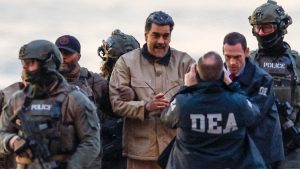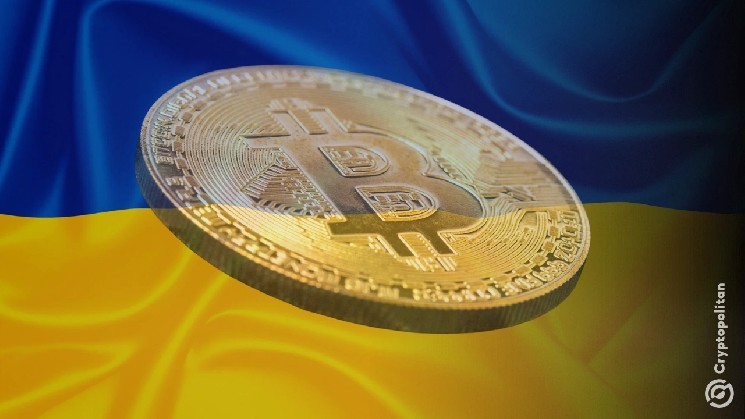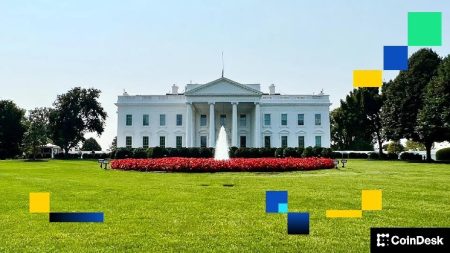West Launches Financial Audit Into Ukraine’s Fund Management, Including Cryptocurrency Transfers
Western Allies Initiate Investigation of Ukraine’s Financial Flows Amid Push for Peace Resolution
In a significant development that signals shifting dynamics in Western support for Ukraine, allies have commissioned a comprehensive audit of funds flowing in and out of the war-torn nation, according to Oleksii Arestovych, a former advisor to Ukrainian President Volodymyr Zelenskyy. This financial probe, reportedly ordered by the British government, specifically targets potential misappropriation of funds, with particular attention to cryptocurrency transactions.
The investigation emerges as part of growing Western pressure to advance peace negotiations in a conflict that has devastated Eastern Europe for over three years. “This is the first serious step by Western partners in the fight against corruption in Ukraine,” Arestovych stated in a Telegram post on Saturday. “A large-scale audit has been launched by people who have extensive experience and capabilities in identifying corrupt funds.” According to the former presidential advisor, London has engaged a “very serious” auditing firm to examine all cryptocurrency transfers to and from Ukraine, suggesting a shift from previous approaches to financial oversight.
Dual-Pressure Strategy Emerges as West Balances Support and Accountability
The financial investigation represents just one element of what appears to be a coordinated Western strategy to pressure both Ukraine and Russia toward the negotiating table. While Ukraine faces increased financial scrutiny, Russia continues to feel the weight of international sanctions. This week, the Biden administration implemented fresh American sanctions against Moscow, citing frustration over Russia’s perceived lack of genuine peace efforts. Concurrently, the European Union approved its nineteenth package of penalties, including new measures specifically targeting Russian cryptocurrency platforms.
“It looks like a financial investigation of the machinations of Ukrainian authorities,” Arestovych explained in a conversation with independent Russian journalist Yulia Latynina. “It’s the first serious news about Western auditing of Ukrainian corruption.” This dual-pressure approach aligns with recent statements from President Trump, who has emphasized that both warring nations will need to make concessions to achieve lasting peace. The timing of this financial probe suggests Western powers are recalibrating their approach after more than three years of conflict, seeking greater transparency and accountability from all parties involved.
Arestovych’s Controversial Role in Ukraine’s Political Landscape
The messenger of this significant development carries his own complex history within Ukrainian politics. Oleksii Arestovych gained prominence for accurately predicting Russia’s invasion as early as 2019, well before most Western intelligence agencies publicly acknowledged such a possibility. By late 2020, his insights earned him an appointment as advisor on strategic communications in the field of national security and defense to Andriy Yermak, Head of the Office of the President of Ukraine.
During the critical early days of Russia’s full-scale invasion in 2022, Arestovych played a pivotal role in bolstering Ukrainian morale through daily briefings on battlefield developments. His candid analysis and frequent appearances on YouTube podcasts discussing war developments earned him a substantial following both within Ukraine and throughout Russian-speaking communities globally. However, his relationship with the Zelenskyy administration deteriorated after he publicly announced intentions to run for president in August 2022. The final break came in January 2023, following controversial comments suggesting Ukrainian air defense systems had inadvertently diverted a Russian missile into a residential building in Dnipro – remarks that sparked intense public backlash and led to his resignation.
Cryptocurrency Oversight Represents New Focus in War Financing Scrutiny
The specific focus on cryptocurrency transactions marks an evolution in how Western allies monitor financial support to Ukraine. Since the conflict’s escalation in 2022, cryptocurrency has played an unprecedented role in war financing, with Ukraine receiving millions in crypto donations from supporters worldwide. The borderless, sometimes pseudonymous nature of crypto transactions has provided valuable flexibility for Ukrainian forces needing to rapidly procure supplies, but these same characteristics create challenges for traditional financial oversight mechanisms.
“This is already serious,” Arestovych emphasized regarding the cryptocurrency audit, suggesting the investigation represents a significant shift in Western approach to financial transparency in Ukraine. Cryptocurrency has emerged as both a lifeline and a potential vulnerability in modern conflict zones – offering rapid, censorship-resistant funding channels while simultaneously presenting new opportunities for fund diversion or mismanagement. The British-led audit appears designed to ensure donated funds reach their intended purposes rather than being diverted through crypto’s potentially less traceable channels. This focus reflects growing sophistication in how international partners approach financial oversight in complex geopolitical crises, particularly where traditional banking infrastructure faces disruption.
Broader Implications for International Support and Conflict Resolution
The financial investigation occurs against a backdrop of evolving international support for Ukraine. After three years of conflict with no clear resolution in sight, Western allies appear to be recalibrating their approach. The audit suggests a more conditional relationship developing between Ukraine and its supporters – continued aid balanced against increased expectations for transparency and good governance. This shift could signal a new phase in international engagement with the conflict, one where pressure for peace negotiations intensifies on both sides.
Currently residing primarily in the United States after leaving Ukraine amid accusations of being a Russian spy, Arestovych remains a controversial but influential voice on Ukrainian affairs. His revelations about the financial audit – if accurate – indicate Western powers are pursuing multiple parallel tracks to influence conflict resolution: continued military support coupled with enhanced financial oversight for Ukraine, alongside escalating sanctions and threats of expanded weapons approvals against Russia. This balanced pressure approach suggests international patience may be waning as the conflict enters yet another year with tremendous human and economic costs. As financial investigators begin examining the complex money flows surrounding this conflict, including cryptocurrency channels, their findings may significantly impact both future international support and the path toward potential peace negotiations in Eastern Europe.















